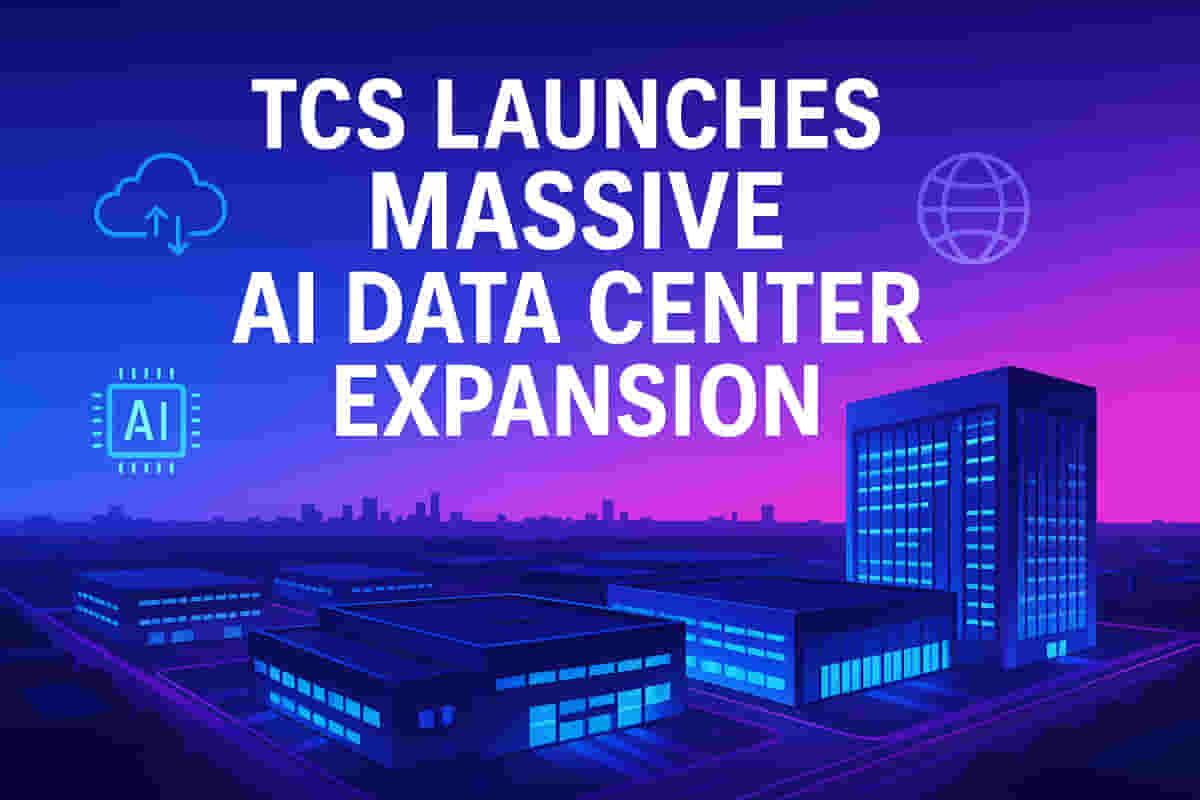TCS Invests $6.5 Billion in AI Data Centers to Lead Global AI Services and Boost India's Digital Infrastructure
Tech
|
30th October 2025, 7:18 PM

▶
Stocks Mentioned :
Short Description :
Detailed Coverage :
Tata Consultancy Services (TCS) has revealed an ambitious $6.5 billion capital expenditure blueprint focused on developing capabilities for Artificial Intelligence (AI) data centers. TCS CEO K Krithivasan stated the company's objective is to become the world's largest AI-led services company, capitalizing on both global client opportunities and strong domestic growth prospects. The funding strategy involves a combination of equity and debt, with TCS partnering with a financial investor to ensure flexibility and strategic control over its expansion. This initiative aligns with a larger trend of Indian firms increasingly utilizing private capital to scale their operations and meet escalating digital demand.
Industry experts note that institutional investors like Apollo, Blackstone, and CPP Investments are actively providing substantial, long-term debt against predictable revenues from major cloud providers (hyperscalers). This signifies a paradigm shift, with data centers now being viewed more as core infrastructure assets rather than just technology real estate, due to their robust demand characteristics. India's data center capacity is anticipated to exceed 2,000 Megawatts (MW) within the next two years, requiring an estimated $3.5 billion in additional investment. Leading Indian operators such as AdaniConneX, Yotta Data, and CapitaLand have already secured approximately $2 billion to develop expansive hyperscale facilities. The nature of capital flowing into this sector is evolving, with flexible private credit and long-dated infrastructure funds playing a more prominent role.
A Barclays report projects that India could attract around $19 billion in data center investments by 2030, a considerable rise from last year's $12 billion. Demand is driven by both hyperscalers and large enterprises like banks and stock exchanges, with hyperscalers showing faster growth due to their extensive AI plans.
Impact: This substantial investment by TCS, alongside broader industry trends, will significantly bolster India's digital infrastructure and AI capabilities. It is expected to attract further domestic and international investment, enhance India's position as a global technology hub, and stimulate job creation within the IT and infrastructure sectors. The strategic focus on AI strengthens the nation's technological self-reliance and economic competitiveness. Rating: 8/10.
Heading: Difficult Terms and Their Meanings Capex (Capital Expenditure): Money spent by a company to acquire or upgrade physical assets like buildings, machinery, or technology infrastructure. AI (Artificial Intelligence): The development of computer systems that can perform tasks typically requiring human intelligence, such as learning, problem-solving, and decision-making. Tech Colonisation: A term used to describe a situation where a country becomes overly dependent on foreign technology and digital infrastructure, potentially leading to a loss of control and economic vulnerability. Private Capital: Funds invested by individuals or institutions (like venture capitalists, private equity firms, or hedge funds) rather than through public markets. Equity: Ownership interest in a company, usually represented by shares of stock. Debt: Money that is owed to a lender, which must be repaid, often with interest. Financial Investor: An entity that invests capital with the expectation of financial return, such as a private equity firm or a large investment fund. Hyperscaler: Very large cloud computing providers that operate massive data centers and offer services to a vast number of users and organizations (e.g., Amazon Web Services, Microsoft Azure, Google Cloud). Hyperscale Campuses: Large, dedicated facilities designed to house the extensive infrastructure required by hyperscalers to deliver cloud services. Long-tenor Debt: Loans or borrowings that are scheduled to be repaid over a lengthy period, typically many years. Contracted Hyperscaler Cash Flows: Predictable revenue streams from long-term contracts with hyperscalers for data center services. Infrastructure Assets: Physical assets like roads, bridges, power grids, and data centers that are essential for the functioning of an economy or society. Data Centre Capacity: The total amount of computing and storage resources that a data center can provide, often measured in Megawatts (MW) for power or Gigabytes/Terabytes for storage. MW (Megawatt): A unit of power, equal to one million watts. Used here to measure the power capacity of data centers. Incremental Investment: Additional capital spending required to achieve a specific goal or expansion. Operators: Companies that manage and run data centers. Digital Infrastructure: The physical and virtual components that enable digital services and connectivity, including data centers, networks, and software. AI-led Demand: The increasing requirement for computing power and specialized infrastructure driven by the development and deployment of AI technologies. Predictable Cash Flows: Revenue streams that are expected to be consistent and reliable over time. Hard-Asset Characteristics: Refers to data centers being physical, tangible assets that have a fundamental value, similar to real estate or utilities, which makes them attractive for long-term investment.